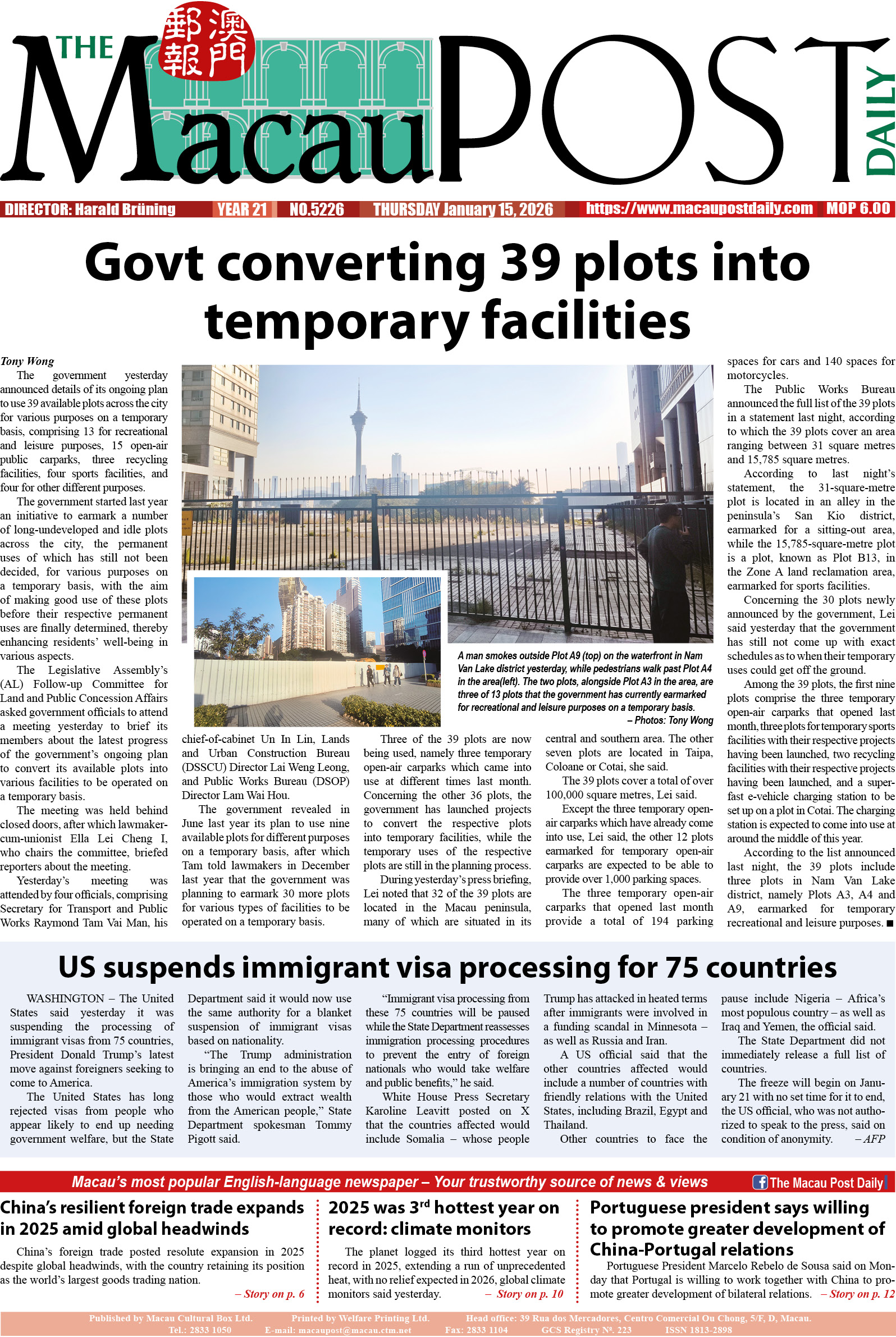The implementation of a rent control law may reduce the new supply of rental apartments and also would see landlords passing expenses onto the tenants instead, Jones Lang LaSalle (JLL) Macau office’s residential property chief Jeff Wong Chi Wai said yesterday.
The global real estate services firm held a media briefing at its office in the Finance and IT Centre yesterday about its mid-year property review of Macau.
While the firm sees the residential market regaining momentum amid “robust primary sales, leading to strong price growth in some residential projects”, it is concerned about the government’s rent control bill slated to be submitted for a final vote to a plenum of the legislature next month.
According to the firm, the number of residential property transactions in the first five months this year totalled 4,960, a year-on-year increase of 49.1 percent.
Wong said the market was stimulated by the launch of presale projects. Based on JLL data, capital values for high-end and mass-to-medium residential properties rose by 8.8 percent and 6 percent respectively in the first half of this year, compared to the figures recorded at the end of last year, but yields were down to 1.3 percent and 1.5 percent respectively.
In addition, the rental values for high-end residential properties saw a 3 percent increase compared to the end of 2016 due to a slight increase in the number of non-resident workers and the limited amount of new residential projects being completed in the first half of this year, according to the press briefing.
Concerning the rent control bill, the outline of which was passed in November 2015, Wong said that it might reduce supply as it could deter landlords from putting their property on the rental market.
The bill proposes a coefficient-based mechanism to ensure “reasonable” rent increases for residential, commercial and industrial units when rental agreements are up for renewal, in addition to an arbitration system for rental disputes.
Wong said that the rent control bill was against free market principles and therefore would hurt the market.
“In the short term, there will be a decrease in [the] supply of leasing apartments in the market and in the long run, it would hurt market adjustments when the economy is improving and where there is demand,” Wong said, pointing out that while it was the bill’s intention to protect tenants, the outcome might be exactly the opposite.
“The landlord would just pass the expenses such as transaction costs, maintenance costs and management fees on to the tenant, this has happened in many other places [that have rent control laws],” Wong said,
He also said as the bill’s main concern was the housing issue, the best way to solve the problem was to increase the supply of housing and, based on experience in other cities, a rent control law was not a very effective way to help tenants.
“Limiting rent increases or fixing the tenure is only a short-term measure, in the long run, it is about meeting the demand for housing. This needs to be solved through supply and demand, whether it’s in the private or the public sector,” Wong said.
Wong said the main reason that Macau’s property prices are rising so fast was due to the imbalance of demand and supply, as well as the lack of government land sales and housing supply information for the public’s reference.
He suggested the government explore the possibility of adding further conditions to its land sales such as requiring developers to set aside space for apartments for young adults, in cooperation with the government.
“This can help prevent the transaction prices from being pushed too high, alleviate demand-supply imbalance in the sandwich-class housing sector, while making developers bear corporate social responsibilities,” Wong said.
(From left to right) JLL Macau’s Head of Retail Oliver Tong, Associate Director Alison Yip, Head of Residential Jeff Wong Chi Wai and senior analyst Mark Wong listen to a reporter’s question during a media briefing at their office in the Finance and IT Centre yesterday. Photo: Monica Leong





